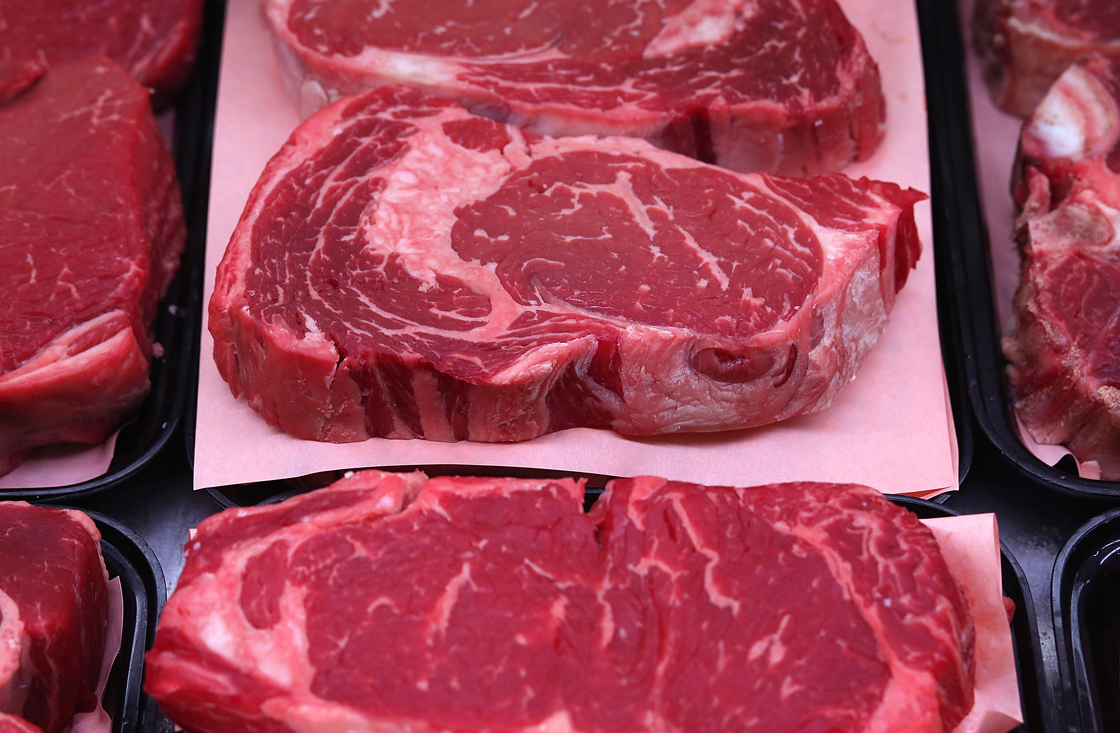Should Canadian consumers be worried that the drought ravaging Western Canada – home to one of North American’s biggest cattle herds – is going to push beef prices at the checkout even higher?

That depends on who you ask. But the short answer appears to be, a bit.
“It’s not helpful,” Kevin Grier, a livestock market analyst based in Guelph, Ont., said about the drought’s impact on retail meat prices. “But it’s certainly not immediate.”
Grier said Friday a drought that’s rendered more than half of Alberta’s pasturelands in “poor health” according to the province’s farming ministry and sent ranchers scrambling to shrink herd sizes isn’t dire enough to move the needle on what supermarket customers are paying.
MORE: Feds grant relief for Western Canada livestock producers
U.S. herds from Texas to Nebraska are growing again this summer following the end of a multi-year drought which shrank U.S. cattle numbers to multi-decade lows – and sent North American beef prices surging (see chart).
“The U.S. herd is expanding finally,” he said.
That’s helping to partially mitigate price inflation, the analyst said. Western Canadian ranchers are also sending more cattle to producers in an effort to cull their own herds, he said, raising supply.
“The first impact of a decline in the herd is the exact opposite of what you might think. You’re going to have more beef on the market,” Grier said.
- What is a halal mortgage? How interest-free home financing works in Canada
- Capital gains changes are ‘really fair,’ Freeland says, as doctors cry foul
- Ontario doctors offer solutions to help address shortage of family physicians
- Canada will take bigger economic hit than U.S. if Trump wins election: report
Price pressure
Still, Canadian beef prices are feeling upward pressure. It will take at least another year for U.S. cattle output to recover and domestic beef exports into the United States continue to rise, climbing 7 per cent through the first four months of the year to 77,900 tons.
Experts say more beef moving across the border has the knock-on effect of straining prices here as supply tightens. Beef producers in Canada are paying 14 US cents more per pound of beef than competitors in the United States, Brian Perillat, an analyst at market researcher Canfax, told Bloomberg News.
Those elevated costs are weaving their way into the supermarket.
“We’re seeing beef prices at all-time highs at the moment,” Galen Weston, executive chairman and president of Loblaw, the largest grocer in Canada, said on an earnings call this week.
MORE: Seeds of crisis? Historic farmland boom raises red flags
Demand there
The per-kilogram price of sirloin steak hit $24.61 last month, according to Statistics Canada. Still, consumers are continuing to buy the red meat. “Tonnage is continuing to grow,” Weston said.
The demand environment has provided grocers with little incentive to lower retail prices now that consumers are conditioned to the higher cost of beef — especially if supply finds itself stretched again.
“There’s just no way anyone’s going to lower prices. It’s just not going to happen,” Grier said. “Everybody knows the big picture.”
WATCH BELOW: Western Canada’s drought and the impact on food prices


Comments